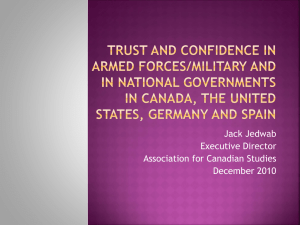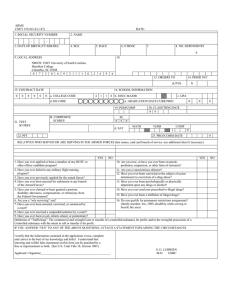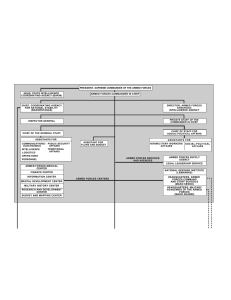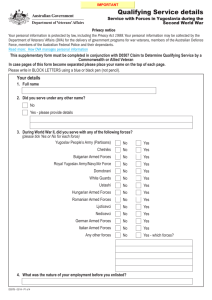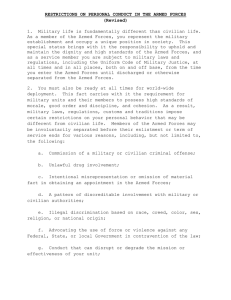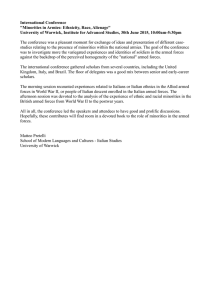2 International Conference of Ombuds Institutions for the Armed Forces
advertisement
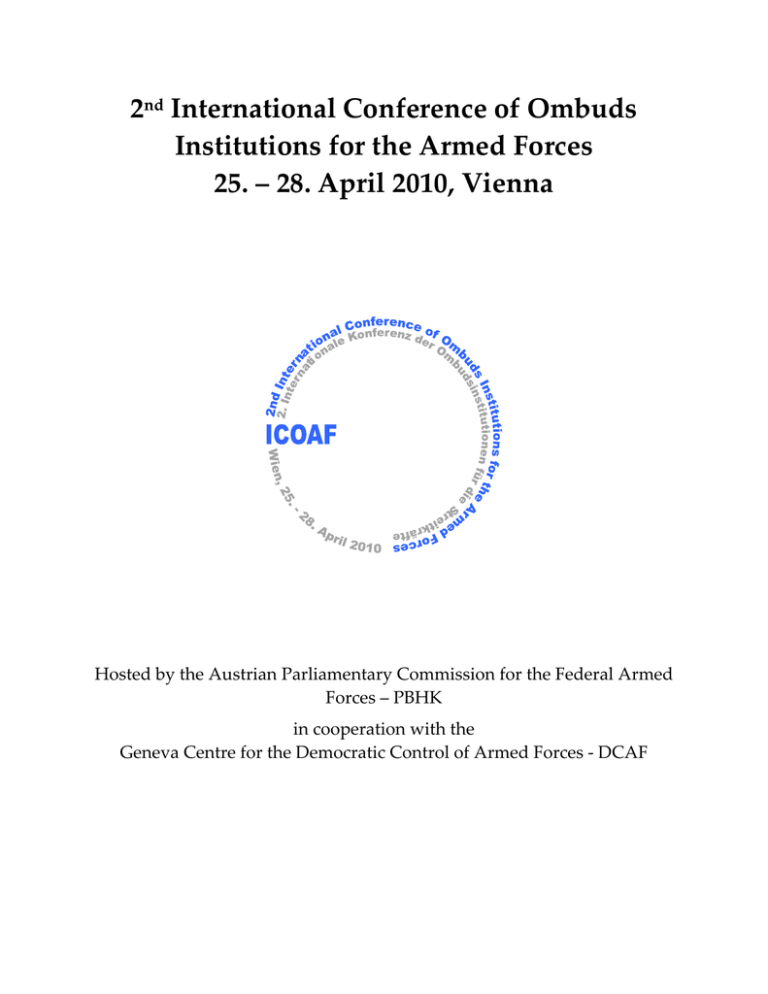
2nd International Conference of Ombuds Institutions for the Armed Forces 25. – 28. April 2010, Vienna Hosted by the Austrian Parliamentary Commission for the Federal Armed Forces – PBHK in cooperation with the Geneva Centre for the Democratic Control of Armed Forces - DCAF I. Preface The 2nd International Conference of Ombuds Institutions for the Armed Forces, held in Vienna from 25 to 28 April 2010, continues the cooperation process among these independent institutions. The long-term goal is to strengthen the various legal and other framework conditions of these controlling bodies as far as they are already in place, ranging from parliamentary ombuds institutions to institutions embedded in the military, which are responsible for the control of armed forces. With regard to that, German Parliamentary Commissioner for the Armed Forces Reinhold Robbe wrote in his 2009 year’s report: “Particularly in view of the fact that in many countries in the world soldiers are still being misused for political purposes and that in many parts of the world the human rights situation of soldiers is catastrophic, international cooperation among the ombuds institutions is of utmost importance.” The focus of this conference which is co-organized by the Parliamentary Austrian Armed Forces Commission and the Geneva Centre for the Democratic Control of Armed Forces (DCAF) is on the role of ombuds institutions in promoting and protecting the human rights of servicemen and servicewomen during peacetime and during military operations as well as on the care they receive after such operations come to an end. Against this backdrop, the “Vienna Memorandum” serves as the basis for successful country-overarching cooperation in the interest and for the good of the soldiers. President Anton Gaál Executive Chairman of the Austrian Parliamentary Commission for the Federal Armed Forces III. Conference Programme Sunday, 25 April 2010 18.00 Accreditation of the conference members at the “Welcome Desk” in the lounge of Hotel de France, Schottenring 3, 1010 Wien 20.00 Dinner reception given by the Director of the Geneva Centre for the Democratic Control of Armed Forces (DCAF), Ambassador Dr. Theodor H. Winkler, at Hotel de France Monday, 26 April 2010 09.30 Transfer from Hotel de France to the House of Parliament 10.00 Welcome address and opening of the conference by Mag.ª Barbara Prammer, President of the Austrian National Assembly 10.15 Welcoming words by Werner Faymann, Chancellor of the Republic of Austria 10.30 Introductory Remarks by President Anton Gaál, Executive Chairman of the Austrian Parliamentary Commission or the Federal Armed Forces 10.45 Welcoming words by Ambassador Dr. Theodor H. Winkler, Director DCAF 11.00 Welcoming words by Reinhold Robbe, German Parliamentary Commissioner for the Armed Forces Music provided by the Guard Band of the Austrian Armed Forces 11.30 Photo opportunity 12.00 Lunch buffet in the House of Parliament 13.00 Welcoming words by General Mag. Edmund Entacher, Chief of Defence Staff of the Austrian Armed Forces 13.15 Citizens in Uniform? Human Rights of Members of Armed Forces - a Comparison Lecturer: Hans Born - DCAF 13.30 Panel 1: Right to Free Expression of Opinion, Freedom of Association and Freedom of Assembly of Members of Armed Forces Lectures: Belgium, Germany, Serbia, Slovenia 14.45 Coffee break 15.00 Panel 2: Dealing with Diversity in Armed Forces: Gender, Sexual Orientation, Ethnicity and Religion Lectures: Argentina, Austria, Lithuania, Great Britain 16.30 Panel 3: The Role of Ombuds Institutions in Promoting and Protecting the Human Rights of Members of Armed Forces (I) Lectures: Bosnia and Herzegovina, France, Ireland, U.S.A. 18.00 Transfer to Hotel de France 19.15 Departure from Hotel de France 19.30 Dinner Reception given by the Executive Chairman of the Austrian Parliamentary Commission or the Federal Armed Forces, President Anton Gaál in Vienna’s Krieau Tuesday, 27 April 2010 09.45 Transfer from Hotel de France to the House of Parliament 10.00 Panel 4: The Role of Ombuds Institutions in Promoting and Protecting the Human Rights of Members of Armed Forces (II) Lectures: Estonia, Hungary, Finland, Poland 11.00 Panel 5: Support for Families of Members of Armed Forces Lectures: Austria, Canada, Germany 12.00 Walk to Vienna City Hall 12.30 Reception given by Prof. Harry Kopietz, First President of the Vienna Province Parliament 14.00 Panel 6: Matters Concerning Veterans Lectures: Netherlands, Romania, Sweden 15.00 Panel 7: Post-traumatic Stress Disorder – PTSD Lectures: Canada, Norway, U.S.A. 16.00 Coffee break 16.30 Concluding session and discussion concerning further procedures Vienna Memorandum Chair: President Anton Gaál 17.30 Guided tour of the House of Parliament 18.15 Transfer to Hotel de France 19.30 Departure from Hotel de France 20.00 Social Event „Heuriger“ Wednesday, 28 April 2010 09.45 Departure from Hotel de France 10.30 – 13.00 Guided tour through the Museum of Military History 13.00 End of the Conference
